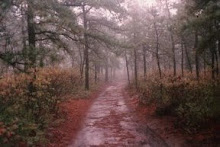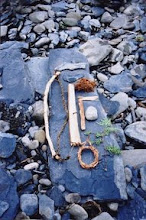
When a person asks for more info about the course, one of the first things I will tell them is that they can do all of these skills on their own, without the course. I try to emphasize this point, because there are many people who are organized, self-motivated and just tend to go for it and make it happen on their own.
On the other hand, it is important to understand a basic framework for learning, growing and developing mastery. Mastery is what I am shooting for. Not casual. Not ‘somewhat’ proficient. Mastery. That is a different animal altogether. And it is something that takes time, it takes pacing, it takes an intrinsic understanding of human nature, the process in which these skills develop and a big dose of motivation and inspiration to push someone through to get there.
When you think of a winning team, any team, and you look at their coach, you know that that person is more than just an X’s and O’s playmaker. They understand passion. They understand how to ignite a burning desire to win, to find a way to win, even when you are dead tired and the last thing you want to do is work on your jump shot, or your bunting, or whatever sport it is....
There are many awesome players who have just needed the right coach and environment to develop and take their game to a whole new level.
You can’t build a winning team without players who understand the fundamentals of the game. How to move, the footwork, the conditioning, the shooting, passing and so forth. All of the wilderness skills have the same need for a systematic approach to make them reliable. Let’s face it. If you can’t get a fire when you really need it, what the hell good is all of your practicing and work? You don’t want to be the guy who missed the last second field goal, or the jump shot, after all that practicing! (Okay, enough of the basketball/sports metaphor!)
This is where the Correspondence Course provides the difference between casual practice and learning, and real training that adds up to something that will work, time after time. Not every student is looking for this.
When Jeff Eckhouse, Simon Mayer, Chris Marx, Matt Burr and I were piloting this course, we talked about why a wilderness skills instructor has to be literally that good.
We knew that if a person hasn’t done their homework, their fieldwork, their ‘dirt time’ as Tom Brown, Jr. likes to say, then that person’s tendency is to begin to mentor with ego, using bravado, stories, comments and other ways to verbally and non-verbally keep their students off balance and at arm’s length. This usually is because a serious student, or other instructor, can become someone who can see through their lack of experience, and that is terrifying.
Having seen this in different situations, we wanted to find the root cause of this kind of poor mentoring. We saw that often, it was because the student was pushed to become a teacher or instructor before they had fully mastered the skills they needed to teach at a high level, and that when they started teaching they were left on their own, without support or backup, and the cycle continued.....
Anyway, we knew that if we trained people in this kind of mastery/depth approach, that good things would come of it. So far, we have been very pleased, even with students that haven’t completed the full course. Nothing could make me happier.....
What do you think about this? Have you seen instances where this is true? Do you have an opposing opinion? Please share and let us know what you think!













No comments:
Post a Comment